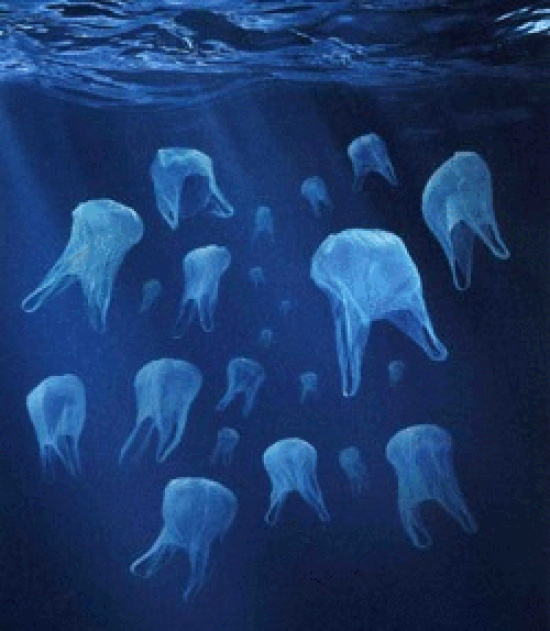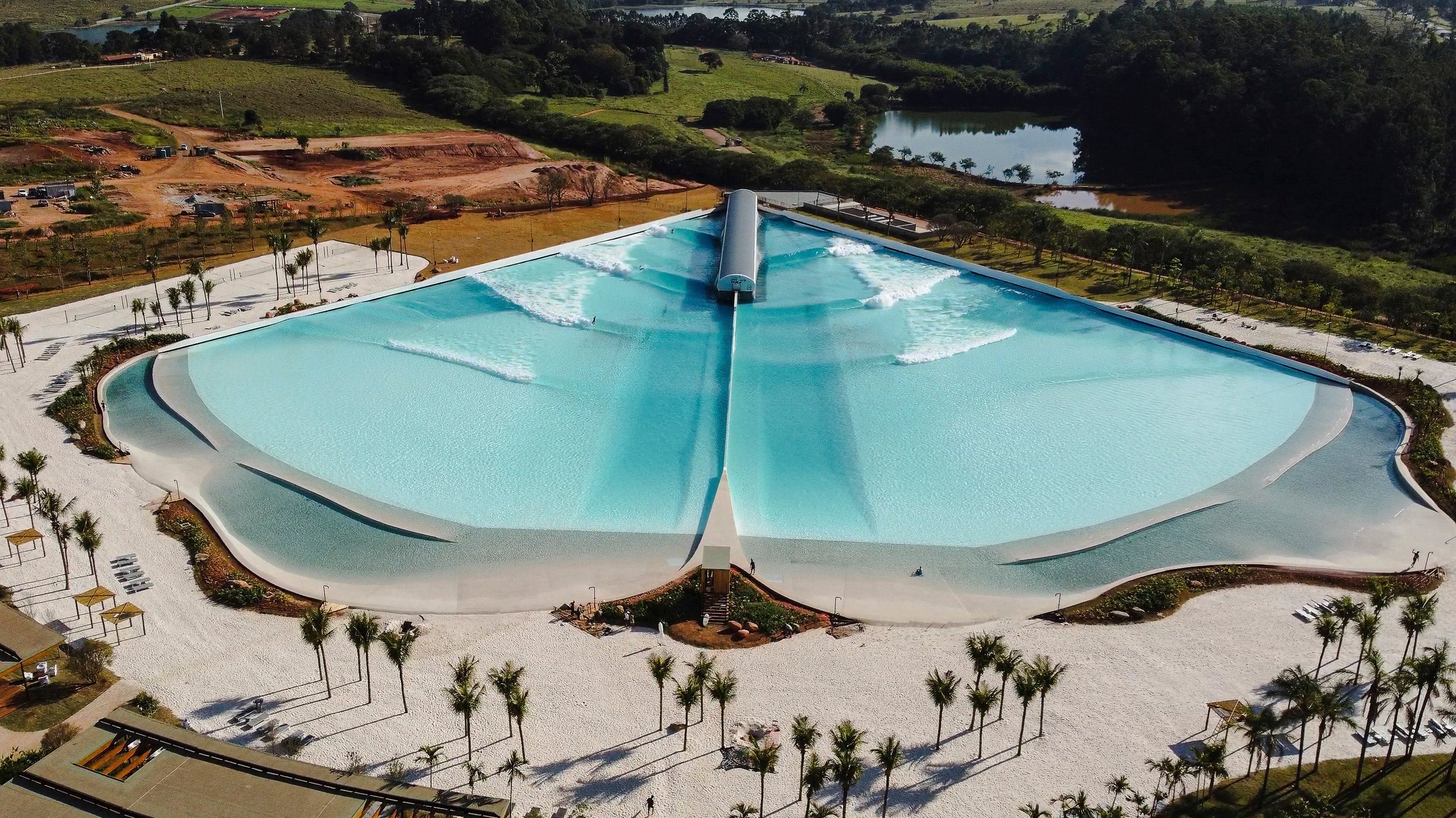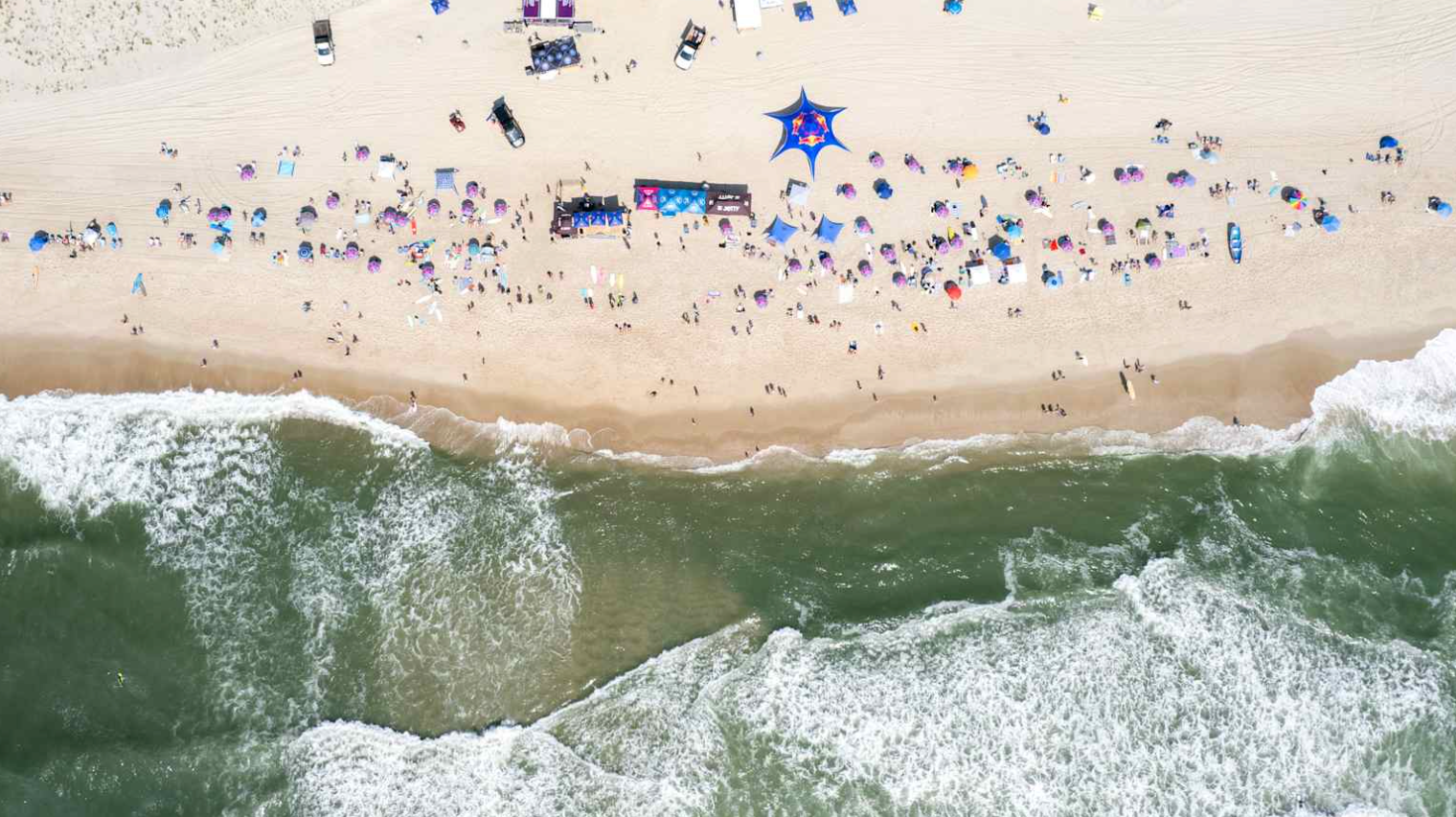Plastic. There's no question that plastic has done a lot to improve human lives. Car seats, helmets, and plastic medical items (just to name a few) are important items that not only enhance human lives, but save them. But plastics are EVERYWHERE. Many are used for convenience, and one-time use. Take a day to count how much plastic you actually use. Write a list, and you may be surprised at how much we have become dependent on plastic. We are consuming more and more single-use plastic items each day.
As I wrote this article, I grabbed a quick coffee from the Keurig machine and used a disposable plastic one-time pod. I grabbed a Chobani yogurt from the fridge in a plastic container. And that is just the start of my day. If we think about it...we drink out of plastic straws, eat off plastic plates and utensils, we wrap our leftover food in plastic, carry our things in plastic bags, store our kids toys in plastic bins, etc. We use more plastic than we think. We have all grown up with plastic. Plastic was actually invented in the mid-1800's and has been mass-produced since the end of World War II. Plastic has truly become part of our everyday lives, and production keeps increasing. In fact, plastic production has quadrupled since the 1980's.
But, what they don’t tell us growing up is that plastic is forever! It DOES NOT biodegrade. If it is not recycled, it ends up filling our landfills and choking our oceans.
On April 22nd, Gumbo Limbo will be showing a thought-provoking film called at an event called "Make a Wave of Change".
WE CAN ONLY SEE CHANGE WHEN WE MAKE IT
"Our oceans are in dire need of help. It is only through awareness of the pollution issue that people will begin to care about the importance of a healthy ocean and our responsibility to protect it." -Gumbo Limbo
Join Plastic Oceans Foundation, Simply180 and Gumbo Limbo for the premiere of the extraordinary film, A Plastic Ocean.
READ MORE ON HOW YOU CAN MAKE A DIFFERENCE TO CUT DOWN PLASTIC POLLUTION FOR FUTURE GENERATIONS.
HELP KEEP OUR OCEANS CLEAN!
So how does plastic trash go from sitting on a sidewalk to becoming part of the plastic pollution problem in our oceans?
Next time you litter or throw trash in an over-loaded trash can, think about the many ways that trash can be moved around our environment. Weather such as rain and wind can blow trash into nearby waterbodies and storm drains. From there, the path to our ocean is just a short journey.

Turtles often mistake plastic bags for jellyfish
Unfortunately, once plastic debris is in the marine environment, it’s there to stay because plastic never fully degrades. Instead, plastic breaks into smaller and smaller pieces, due to waves and the movement of the water. Eventually plastic becomes what we call “microplastics.” These are small plastic pieces which are often less than 5 millimeters in size. Seventy perent of these microplastics sink and make it down to the seabeds where they damage reefs and marine life.
Plastic debris and microplastics can wreak havoc on the marine environment.
- Plastic pollution can harm marine animals by entangling them in debris like derelict nets or plastic 6-pack rings. This causes injury and death to marine life.
- Animals may accidentally ingest plastics, mistaking them for food. These fish are sometimes later consumed by humans.
- Plastic debris debilitate sensitive and important habitats like coral reefs by physically damaging them or smothering them.
- Plastics can also have direct impact on our economy. It can create boating hazards, pollute our beaches, impact tourism, and contaminate our food chain.
Unfortunately, people are the sole cause of the plastic pollution that enters our ocean.
But luckily, that gives us the power to solve the problem!
WHAT'S THE SOLUTION?
So we use a container and throw it away. Where does it go? First we need to know that "away" is not actually a land far, far away but actually somewhere in our environment in the world that we call home. It ends up somewhere where we eat, sleep, play and live our daily lives. And if we do not recycle our plastic, it is usually shoved into a landfill or makes it way into our ocean.
We can keep plastic out of the landfill by recycling (taking used plastic and making new plastic) . But, when we get real, recycling is second to simply reducing the amount of plastic that we bring into our homes in the first place. Recycling does not take away the vast amount of plastics that we have already produced in the world. In fact, recycling centers are huge air polluters.
Recycling may be a "better" option then landfills, but it is not the best solution. We need to start by refusing to use these daily consumables and reduce the supply-and demand. Less demand for daily plastics ultimately equals less production.
Next time you are offered a straw, say NO. Consider purchasing a refillable coffee pod for that single-use coffee dispenser. Buy reusable bags and keep them in the truck of your car. Make small changes to say NO to daily plastics.
PEOPLE AND ORGANIZATIONS CHANGING THE FUTURE OF PLASTIC POLLUTION:
- Plastic Bank - What if a company could put a dent into plastic pollution AND help those living in poverty? Check out Plastic Bank
- Marine Debris Tracker App - With Marine Debris Tracker, it takes a few seconds to easily report where you find marine debris or litter anywhere in the world… and then prevent it from impacting our oceans.
- Surfrider Foundation - From their Blue Water Task Force to their Rise Above Plastic Campaign, Surfrider is making a difference
- Lego - The most famous plastic toy brand is investing millions into creating a sustainable company
- NOAA - The NOAA Marine Debris Program offers several nationwide, competitive funding opportunities for marine debris projects. These include: marine debris removal grants; prevention through education and outreach grants; and research grants. Learn more about these opportunities. Here are some of the projects happening in South Florida:
20 WAYS YOU CAN STOP PLASTIC POLLUTION
-
Join a community, beach or waterway cleanup
Check Island Water Sports ad the City of Deerfield Beach's site often for upcoming beach cleanups.
-
Educate others and encourage them to join the effort to Refuse, Reduce, Reuse and Recycle plastics
We all can use some encouragement. Lovingly share the info you have learned about plastics, and encourage those close to you to do their part.
-
Just say no to straws
Straws are an unnecessary items that many of us use on a daily basis. Next time you grab a drink at a local restaurant or convenience store opt for no straw or lid. Even better, bring your own cup! Can't imagine life without straws? Opt for paper versions.
-
Do not buy products with microbeads
Microbeads were the new thing a few years back in exfoliates, facial scrubs, body scrubs and even toothpaste. They're the tiny, spherical particles that are smaller than 1 millimeter (about the size of a pinhead), made of (you guessed it) plastic! Once these little buggers get washed down your drain, they make their way into the water system. Since they're too small to be captured by wastewater facilities, they then end up in our waterways, lakes, rivers, and oceans. Fish can mistake these particles for eggs (what we know as caviar) which they often love to eat.
Thankfully we will not be seeing them on the shelves much longer. President Obama passed a bill while he was in office that requires brands to stop using beads in their products by July 2017 and stop selling items with beads in them by 2018. But, we can help by not buying these products before they are forced off the shelves.
-
Use reusable produce bags
About 1 million plastic bags are used every minute! A single plastic bag can take 1,000+ years to decompose. If you're still using plastic produce bags, it's time to make a change. Purchase some reusable produce bags and help keep even more plastic out of the landfill. Make sure you avoid purchasing reusable bags made from nylon or polyester because they're also made from plastic unless they say made from recycled plastic. Also, keep those reusable bags handy. Keep a compact bag in your purse or store them in the trunk of your car. If you have to use a bag at the store, opt for paper instead of plastic.
-
Give up chewing gum
Gum was originally made from a tree sap called chicle which is a natural rubber. But, fast forward a few years to when scientists created synthetic rubber. Chemicals like polyethylene and polyvinyl acetate began to replace the natural ingredients in most gums. So now, not only are you chewing on plastic, but many times you are chewing on toxic chemicals. Although it is possible to (yuck!) recycle your chewed gum, it may be best to skip the chewing altogether.
-
Opt for cardboard instead of plastic
Many companies now offer an alternative packaging for those who want to see a change. You can often buy laundry detergent and dish soap in boxes instead of plastic bottles. Cardboard is always the best bet! Cardboard can be more easily recycled and made into more products than plastic.
-
Buy from bulk bins when possible
Many stores sell bulk food like honey, peanut butter, rice, pasta, beans, nuts, cereal and granola. Opting to fill a reusable bag or container with these items will save both money and unnecessary packaging.
-
Use reusable bottles and cups. Re-use those glass containers
Bottled water produces 1.5 million tons of plastic waste per year! That is a lot of plastic. On top of that, these bottles require 47 millions gallons of oil to produce. By simply refilling a reusable bottle, you’ll prevent some of these plastic bottles from ending up in landfills and oceans. But don’t stop there...make sure to use a reusable cup when buying coffee as well. The average American office worker uses about 500 disposable cups a year on coffee alone. Here's a thought - Many food items come in glass jars instead of plastic ones. Instead of throwing these away or recycling them. You can reuse the jars to store food or take them with you when you’re buying bulk foods. We have added a few options here.
-
Bring your own container
If you are picking up takeout or bringing home your restaurant leftovers, don't be afraid to ask if you can use your own containers. When you place your order, simply ask. Most restaurants will have no problem with it.
-
Use matches instead of lighters
Imagine how many disposable lighters are thrown away each day. Always opt for matches over disposable plastic lighters. These cheap plastic devices sit in landfills for years. Matches are less expensive too. But, if you can't bear to part with your lighter, pick up a refillable metal one to help combat plastic pollution.
-
Skip the frozen foods section
Frozen food is convenient, but also comes with a price. All are packaged in plastic. Even eco-friendly packaged items made from cardboard must be coated with a thin layer of plastic if frozen. Not only will you be helping the environment, but by choosing fresh over frozen, you will be eating fewer processed foods, eating what is in season and avoiding the chemicals from the plastic packaging.
-
Don't use plastic-ware
We have become so used to these but, imagine saying goodbye to disposable knives, spoons, forks, chopsticks, and even sporks. If you forget to pack silverware, keep the plastic ones but consider washing them and reusing them.
-
Return reusable containers
If you purchase berries often, consider saving those plastic containers and bringing them with you to the farmer's market next time you need a refill. You can even ask your local grocer to take the containers back and reuse them.
-
Use cloth diapers
Over 7 billion pounds of disposable diapers are discarded in the U.S. each year. It takes about 80,000 pounds of plastic and 200,000 trees a year to manufacture disposable diapers in the US alone. Instead, consider switching to cloth diapers. You will reduce your environmental impact, save money, and expose your child to less chemicals.
-
Throw Plastic-Free Parties
Parties often call for disposable and lots of plastic...from the flimsy tablecloths to plastic coated streamers and banners. Be a trend setter and consider using cloth tablecloths, real tableware, and creating banners and streams yourself. You will stand out as a great host and significantly reduce your carbon footprint. Go a step further and put out recycling bins and reuse old containers to hold silverware, napkins or flowers.
-
Don't buy juice
With cold-pressed juice riding in popularity, we are all aware of the benefits of fresh juice. Consider this. Instead of buying juice in plastic bottles, make your own fresh-squeezed juice or simply eat fresh fruit. You will be cutting down on plastic waste, getting more vitamins and not be taking in things like added high fructose corn-syrup found in those supermarket juices. Better health for you and our planet!
-
Make your own cleaning products
Did you know that there is really no use for multiple cleaners? With a few basics like baking soda and vinegar, you can free up some space, save a load of cash, and help our environment. To get you started, we have added a few tips on our P interest Board.
-
Pack a lunch the right way
A typical lunchbox is full of disposable plastic. Whether you are packing for yourself, a spouse or your children, it's time to make a change! If your lunchbox is full of disposable plastic containers and sandwich bags, it's time to make a change. Use reusable containers, cloth sandwich bags, and real utensils. Instead of that Lunchable, make your own. Opt for fresh fruit instead of single-serving fruit cups. Buy yogurt, applesauce and pudding in bulk and refill a container each day. See some options here
-
Eliminate plastic in your kitchen
Every kitchen is filled with a large amount of plastics. Imagine if you swapped them all out for these ideas instead:
-
REUSABLE BOWL COVERS:
Buy or make cloth covers to slide onto the top of a bowl of leftovers. Toss them into the washing machine to clean and reuse them.
-
USE GLASS PYREX CONTAINERS:
Although Pyrex container lids are plastic., they are also reusable.
-
REUSABLE FOOD WRAPS:
Instead of plastic sandwich bags, use parchment paper instead or make a reusable snack bags.
-
GLASS JARS:
They are great to hold everything from leftovers, to homemade juice or even overnight oats.
-
DITCH PLASTIC WRAP & BAGS:
It takes a huge amount of time to break down, and can't be recycled. Consider using glass and ceramic plates every time you eat. Make your own condiments, and keep them in reusable jars. Get your meat from a local butcher to prevent added plastic containers. Use trash bags only when needed.
-



